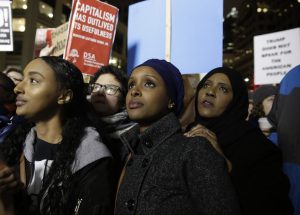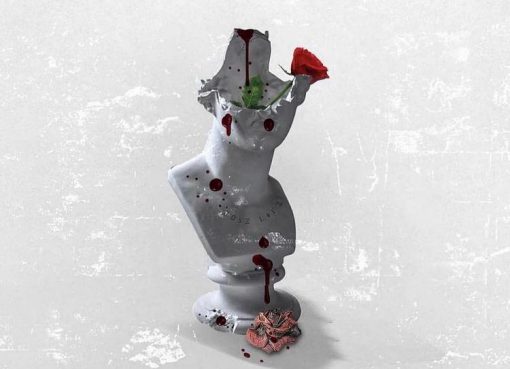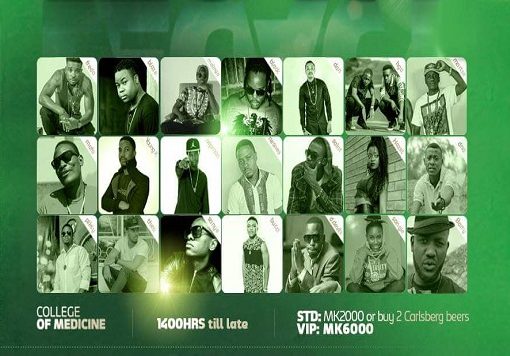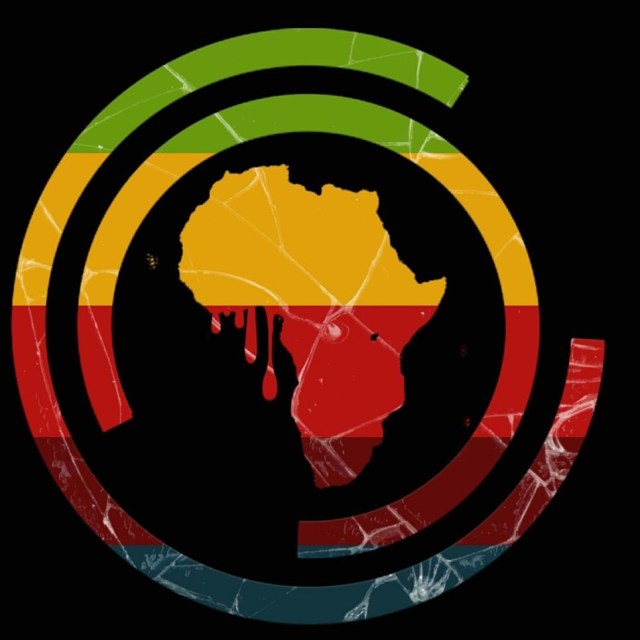Food for thought?
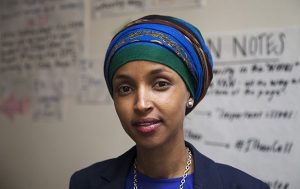
When my family moved to the US in 2000, I became more aware of my skin colour, my accent, my religion, cultural differences. Things I never had to think about in Somalia, I found myself having to explain to other people.
From small things like why my hair curled a certain way (‘If you’re not mixed with anything, why is your hair like that?’) to giving a history lesson on colonialism when asked why I speak English so well.
To my frustration, at 10 years old, I became an unofficial ambassador of all things African and Muslim. Although I could change my accent, the rest was deeply ingrained in my being and determined how I navigated growing up in Texas.
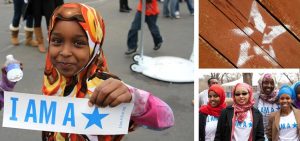
After 9/11 and for over a decade, my existence had been governed by my ability to make people overlook the fact that I am a black, Muslim immigrant, that the first thing that came to mind would not be ‘Oh the girl with the thing on her head.’
I have spent most of my life sanitising myself, to be more palatable to my peers and the people I came across as a result of a tempest of anti-Muslim bigotry cultivated by those fueling the war on terror.
So, no, the executive order signed by President Trump did not come as a surprise to me. He tapped into an already overflowing well of hate that had otherized a group of people, legitimised by both Bush and Obama’s policies allowing them to get away with droning, bombing, and ‘liberating’ people for two successive administrations.
Those same policies that made the ban possible saw me separated from my family and searched when I was 14 on a trip to DC. They have me frequently detained in airports for hours upon arrival, always with the same interrogation and half-assed apology at the end. See, at an airport they look past degrees, volunteer hours, carefully curated Instagram posts and see me for what I am — a Somali Muslim.

To solely blame this ban on Trump would be whitewashing a history of US aggression, torture, erosion of civil liberties, and the elimination of due process when it sees fit. Obama bombed five of the seven countries listed on the executive order.
You can’t sit back and watch as countries are destroyed, their people executed, its future extinguished with every child killed, and then be surprised when refugees show up at your door.
In Dadaab refugee camp, I saw children starve to death, children die from easily preventable and curable diseases, children who laugh when you ask them what they want to be when they grow up because all they really want is a loaf of bread.
I know these people by name and not case number. I know their hopes, dreams, and deepest fears. I know that they pose less of a threat to America than it does to them.
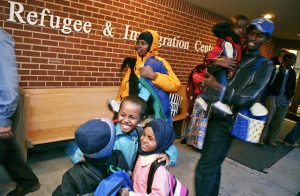
Less than one per cent of refugees were resettled in 2015 and the UN Refugee Agency (UNHCR) refers only the most vulnerable cases to host countries for possible resettlement. Refugees cannot apply for resettlement nor do they pick their country of relocation.
To reach the US, they must first go through eight federal agencies, six different security databases, five separate background checks, four biometric security checks, three separate in-person interviews, and two inter-agency security checks. I know this because I have worked on both sides of this process in the camp and for one of the nine resettlement agencies in the US.
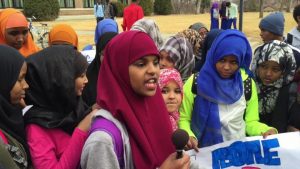
‘I am sure us refugees are going to heaven.’
‘How?’
‘Because no one suffers this much and goes to hell.’
That is a conversation I had recently with nine-year-old Ahmed. Although he was born on Kenyan soil, he is considered a refugee because his parents are themselves refugees. Other than the interviews in Nairobi, camp life is all he knows. His family sold all their possessions and were set to leave for the US but their resettlement process has now been put on hold.
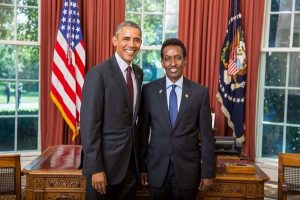
There is not much I can offer a child asking me what they can do now that their golden ticket has been revoked. His story is all too common. But if you ask me how I feel about this ban today, behind the disappointment and anger, there is a deep sense of hope.
When else have you seen large groups of Muslims publicly praying at an airport in America? I saw non-Muslims chant ‘We are all Muslim!’ After the large protests against the ban and show of support for those detained, arriving at DFW Airport doesn’t seem so daunting.
The travel ban has just been reversed – 60,000 visas will not be revoked – after Judge James Robart ruled there were legal grounds to challenge it. And I have hope that if we continue challenging authority and demanding something resembling truth, stories like Ahmed’s won’t end in the open-air prison that is a refugee camp. source – Khadija Farah
